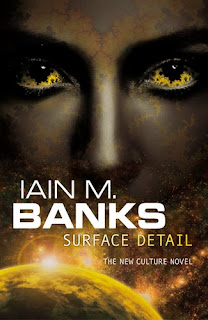 This is going to be tough one to review, as I'm loath to give anything away. I found a hardback copy in a second-hand bookshop with no dustjacket, so I went in knowing absolutely nothing. Except that someone might turn invisible. This never happens. Spoiler.
This is going to be tough one to review, as I'm loath to give anything away. I found a hardback copy in a second-hand bookshop with no dustjacket, so I went in knowing absolutely nothing. Except that someone might turn invisible. This never happens. Spoiler.I will say that it's really worth reading. It has a lot of fun playing with different viewpoints, writing conventions, voices, unreliable narrators and the nature of memoir and fiction. At root, it's all about storytelling really. And evil. And love. All the good stuff.
I used to be well into my Auster in my teens. I was hooked after reading Leviathan, about an ambigous academic turned Unabomber. I can't remember if that was before or after watching the great movie version of The Music of Chance, where James Spader and Mandy Patinkin lose a game of poker and have to build a wall. I especially loved Moon Palace, but all I can remember of that is that the protagonist at one point uses hundreds of books as his furniture. And his New York Trilogy was a pretty big deal back in the day - three stories deconstructing detective fiction. Not sure if I ever finished that. Wasn't as keen on Mr Vertigo though, which had someone learning to levitate. That's probably the reason I though someone might turn invisible in this one. He's a great writer though - I'd say if you like Haruki Murakami you should give him a shot.
Alright, that's just a short review but now - finally - this brings me up to date with my reading. Heading to Florida tomorrow. As well as Banks' Use of Weapons I've got the third Marid Audran novel (currently listening to the second and it's even better than "When Gravity Fails"), the last third of Peter F Hamilton's new one (which is fantastic), the complete GK Chesterton, so I can gorge on some Father Brown, Plutarch's Lives in case I get another hankering for the fall of the Roman Republic (unfortunately he talks about boring Greeks as well), a paperback thriller called The Terror of Living by someone with the unlikely name of Urban Waite (one pound in Asda!), and Orson Scott Card's book on writing science fiction. Oh, and I'll have two new Audible credits in a couple of days. Tempted to download a Hitchcock book after watching Toby Jones in The Girl over Christmas. I'm fairly confident all my bases will be covered for the next fortnight. I ran out of books on holiday once. Never again.





